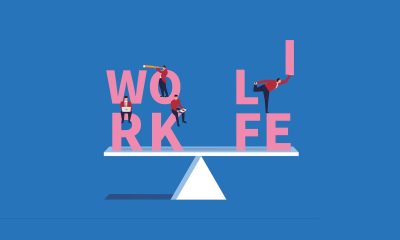Personal Finance
Social Security reform would restore full benefits to public workers

Public workers on a pension plan who were also employed in jobs where they paid into Social Security typically receive reduced benefits, but that could soon change if legislators get their way.
The Social Security Fairness Act would repeal the Windfall Elimination Provision (WEP) and the Government Pension Offset (GPO) – two separate provisions that reduce regular Social Security benefits for workers and their eligible family members if the worker receives a pension based on earnings from employment not covered by Social Security, a recent Congressional Research Service report said.
Although participation in Social Security is compulsory for most workers, about 6% of all workers in paid employment or self-employment are not covered by Social Security. These workers include state and local government employees covered by alternative staff-retirement systems.
Under the GPO, Social Security benefits are reduced by two-thirds of the government pension. If two-thirds of the government pension is more than Social Security benefits, Social Security benefits may be zero. About 4% of workers work in non-covered jobs, almost all of them public employees. About one-quarter of active state and local government employees are in jobs not covered by Social Security.
However, some workers argue that they should be able to access benefits for jobs they held that paid into Social Security even if they earned part of a public pension from a government job.
If high-interest debt is cutting into your retirement savings strategy, you could consider paying it off with a personal loan at a lower interest rate to help you lower your monthly payments. Visit Credible to speak with an expert and get your questions answered.
BUY A HOME IN THESE STATES TO GET STUDENT LOAN DEBT RELIEF
Changes would cost roughly $150B
Fully repealing the WEP and GPO rules would cost an estimated $150 billion over the next decade, according to the Center on Budget and Policy Priorities (CBPP).
“The bill to repeal WEP and GPO includes no offsetting tax increases or spending cuts, and so would worsen Social Security financing, moving the trust fund’s reserve depletion date forward by a year from 2035 to 2034 — or possibly sooner,” the CBPP said.
Another issue is that the repeal could overly compensate workers who have been employed in both traditional and non-traditional occupations. The benefit formula of Social Security is based on progressiveness, according to the CBPP, which means that the benefits received by low-income earners replace a larger proportion of their previous earnings compared to high-income earners. So public workers who have public pension coverage that have also paid into Social Security, may appear to be low wage earners even if they are not.
“Workers with earnings outside the system can look like low earners, and therefore appear to qualify for benefits based on a higher replacement rate, when in fact they have higher earnings and an additional pension to reflect the non-covered earnings,” the CBPP said.
If you are retired or are preparing to retire, paying down debt with a personal loan can help you reduce your interest rate and monthly expenses. You can visit Credible to compare multiple personal loan lenders in one place and choose the one with the best interest rate for you.
MANY AMERICANS PREPARING FOR A RECESSION DESPITE SIGNS THAT SAY OTHERWISE: SURVEY
COLA increases another concern
Social Security and Supplemental Security Income (SSI) benefits for more than 71 million Americans will increase by 3.2% in 2024, according to The Senior Citizens League (TSCL). Beneficiaries will see an extra $59 monthly starting in January. Increased payments to approximately 7.5 million SSI recipients will begin on December 29, 2023.
Although most retirees (68%) worry that the 2024 increase won’t be enough to keep up with rising costs, many are concerned that higher incomes will trigger benefit cuts, according to TSCL. Social Security benefit cuts ranked as the top concern for 59% of respondents.
Higher incomes because of the large cost of living adjustment (COLA) increases over the past three years may impact some seniors’ eligibility for low-income assistance programs such as SNAP (food stamps) and rental assistance, the TSCL warned. Earlier this year, federal emergency COVID assistance for SNAP and Medicaid also ended.
If you’re looking to reduce your monthly expenses, you could consider paying off high-interest debt with a personal loan at a lower interest rate. Visit Credible to speak with a personal loan expert and see if this option is right for you.
COLLEGE TUITION PAYMENT PLANS MAY PUT STUDENT AT RISK: CFPB
Have a finance-related question, but don’t know who to ask? Email The Credible Money Expert at moneyexpert@credible.com and your question might be answered by Credible in our Money Expert column.
Read the full article here

-

 Side Hustles7 days ago
Side Hustles7 days agoHow to Create a Unique Value Proposition (With Tips & Examples)
-

 Investing6 days ago
Investing6 days agoAre You Missing These Hidden Warning Signs When Hiring?
-

 Side Hustles7 days ago
Side Hustles7 days agoThe DOJ Reportedly Wants Google to Sell Its Chrome Browser
-

 Make Money6 days ago
Make Money6 days ago7 Common Things You Should Never Buy New
-

 Investing3 days ago
Investing3 days agoThis All-Access Pass to Learning Is Now $20 for Black Friday
-

 Passive Income3 days ago
Passive Income3 days agoHow to Create a Routine That Balances Rest and Business Success
-

 Investing6 days ago
Investing6 days agoGoogle faces call from DuckDuckGo for new EU probes into tech rule compliance By Reuters
-

 Side Hustles4 days ago
Side Hustles4 days agoApple Prepares a New AI-Powered Siri to Compete With ChatGPT


















